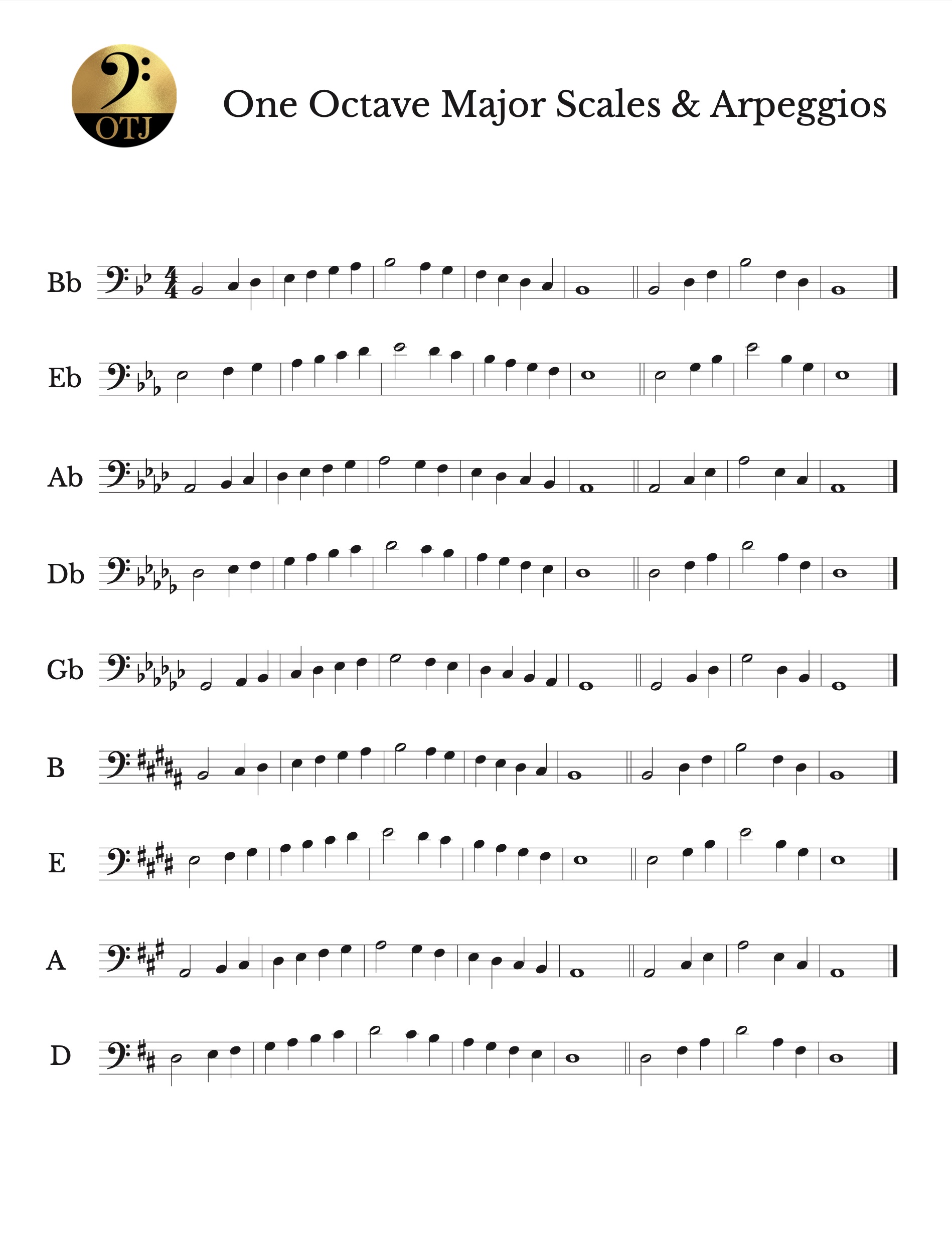One Octave Major Scales & Arpeggios
 Get the One Octave Major Scales & Arpeggios PDF
Get the One Octave Major Scales & Arpeggios PDF
Almost every song or piece of music you know was composed using one of these scales. We name these scales by the first note of the scale. A scale has eight notes and begins and ends on the same note name - eight notes apart. This is called an octave.
Arpeggios are an outline of a scale - the first, third, fifth and eighth notes of the scale. For instruments that can play more than one note at a time, like the piano or guitar, these notes can be played together and are called a chord. Try playing the notes of these arpeggios with other trombone players - each playing a different note. Sounds great!
Scales are the melody of music and arpeggios (or chords) are the harmony of music. Depending on what the composer has decided, the trombone section might be playing a melody or be playing a part of the harmony.
Memorize these scales and arpeggios. Be able to say the key signatures for any of the major scales, and also be able to write them from memory. Once you have these memorized, play them in different ways, using different rhythms. Make up your own tunes in each of the keys using the scale and arpeggios.
And, as always - when practicing or performing - play with the best possible sound. Don't accept anything less. Here are some more tips:
- Accuracy is the first goal, not speed
Work on each scale slowly using a metronome. At first, start at 60 beats per minute OR LESS to get them under your slide and into your mind. The rule is this: If you are making mistakes, you're going too fast. As you start to feel comfortable with them, gradually speed up. - Keep track of your progress.
On your phone or a sheet of paper, make a simple chart with each scale name. Write down the date and metronome setting. After a few weeks, you'll be able to see your progress in this chart. - Set a goal, and stick with it.
How much time are you going to spend on a daily basis working on your scales? 5 minutes? 30 minutes? Somewhere in between? It is not the amount of time spent, but the consistency which will gain the results. A good goal is 10 minutes a day focused on scales as a part of your daily practice routine. - Record
Most of us have very good recording devices - our phones! One of the best practice habits you can have is to regularly record your practice (scales and everything else). Listen to your recordings to hear all the great things you are doing, and the parts of your playing you want to improve. When listening, focus on a specific area like tone, articulation or intonation. Recordings can be shared with your friends, and sent to trombone teachers for even more feedback.
